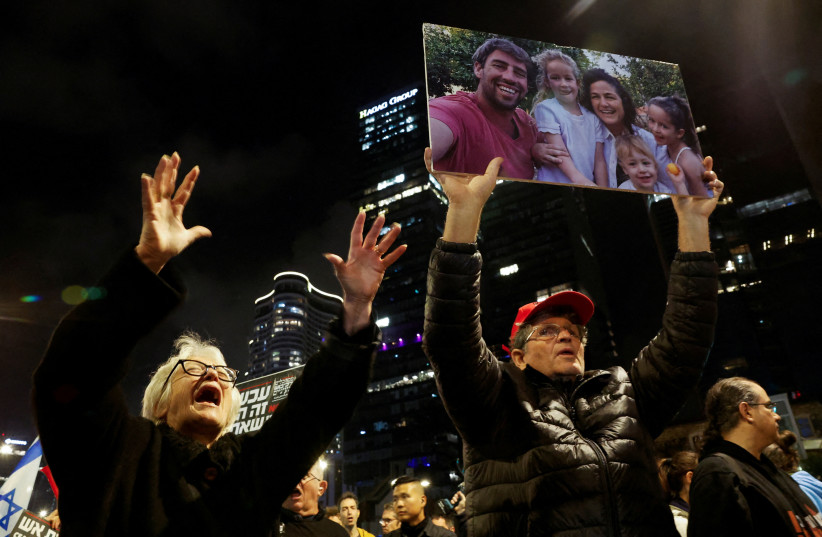There have been a few defining dates in Israeli history. These dates are etched into the Israeli consciousness. August 29, 1897, was the opening of the first Zionist Congress, in Basel, Switzerland. November 2, 1917, was the day England’s Balfour Declaration was issued. November 29, 1947, was the date of the United Nations Partition Plan vote that offered the Jewish people their own state in the land of Israel. On May 14, 1948, the State of Israel was declared to be an independent nation. Yom Kippur 1973 was a more tragic date, when Israel was attacked by surprise by Arab neighbors. A new date has been added to the list of significant markers of Israeli history, October 7.
The place of October 7 in Israeli history will not be a celebratory one, but it might not necessarily be a tragic day like Yom Kippur 1973. Historical records are not written during events nor in the years that follow. The historical record of October 7 will only be written decades from now, and those who will study it and decide its place in history haven’t been born yet. October 7’s place will be painful but the results of the war and its aftermath will determine how it is recorded for prosperity.
Israel and the Israeli people have experienced many transformations in the history of the country. Each transformation has changed it permanently and made it almost unrecognizable from the Israel of the past.
Arguably, the first major transformation was when the Haganah changed its approach to the British mandate policy from defensive to align with the Irgun’s offensive policy. In a quick transformation, the Yishuv turned from victims to antagonists. A second major transformation occurred when early Zionists went from aspiring to create a Jewish state to founding one in 1948. Zionism was no longer a movement, it achieved its dreams and transformed into an internationally recognized country.
Israel's major developments traced
Israel has experienced three other major transformations since its founding in 1948. Until 1967, Israel was a weak country, barely able to defend itself.
In 1967, its neighboring enemies surrounded it on its borders and threatened to annihilate it. Israel was a scared and weak-kneed country. In the Six-Day War that year, Israel found its courage and with its surprising victory over its enemies, transformed itself into a strong, bold country.

From 1967-1973 Israel was a miraculous country that could not be touched. That attitude existed until Yom Kippur of 1973 when it was caught by surprise and almost wiped it out.
The last transformation in Israeli society happened when Israel went from the optimistic Oslo Accords and possible peace with the Palestinians to a cynical Second Intifada against it and dashed hopes of peace.
The attacks of the Simchat Torah massacre on October 7 have brought another transformation to Israel. Before the Palestinian terrorist attacks on Israel’s South, Israel felt itself invulnerable. It had become a top 10 global military force and terrorist organizations, no matter how large, could not defeat it. Almost instantly, Israel became vulnerable. After October 7, Israeli towns far from the Gaza border have increased security and changed their protocols. People are more cautious, and applications for personal guns have skyrocketed.
Israelis have become frightened again.
Shattered trust
Before the attacks, Israel was a trusting nation. The people of the South, who could never have imagined themselves as victims, welcomed Palestinians from Gaza into their region, kibbutzim, and even homes. All the while, their Palestinian “friends” were surveilling their Jewish neighbors and gathering information for a future attack.
Israelis in the attacked kibbutzim talk about how they used to take their Gazan friends to doctor’s appointments at Israeli hospitals. After the attacks, Israelis no longer trust their Palestinian neighbors. Businesses no longer hire Palestinians, yishuvim (“settlements”) have banned them from entering, and people are suspicious that might be attacked by them.
A positive transformation since the attacks from Gaza has been Israel’s change from horrific divisions in the long months prior, to strong unity ever since. The government’s proposed judicial reform of the justice system and its Supreme Court inflamed tensions in the country and divided Israeli society between camps that favored and opposed the proposed judicial reform.
Since the attack, our society has pulled itself together into a united block, fighting its enemies, supporting its refugees, and praying together for the return of the hostages. It is difficult for Israelis to even remember the divisive days that preceded October 7. Israelis on the Right and the Left, religious and secular, and of all regions, have pulled together to defeat Israel’s enemies and strengthen Israeli society.
Uncertainty about what the future holds
We don’t know how the attacks of the Simchat Torah massacre on October 7 will transform Israel years from now. At the moment, when the Israeli people are at war, it is too early to fully understand the effects that the attacks have had on Israel and her people.
Transformations don’t just happen to Israel, they are chosen by the Israeli people. Zionism was a movement that insisted on Jewish people’s self-determination. Early Zionists didn’t only worry about self-determination to be free from the pressures of other nations, but also from allowing events to determine Israel’s future without Israelis determining how it affects them.
Moving forward, the Israeli people will have to determine how the attacks of October 7, the hostage-taking, and the ensuing war against Hamas transformed the country.
The writer is a Zionist educator at institutions around the world and recently published a new book, Zionism Today.
